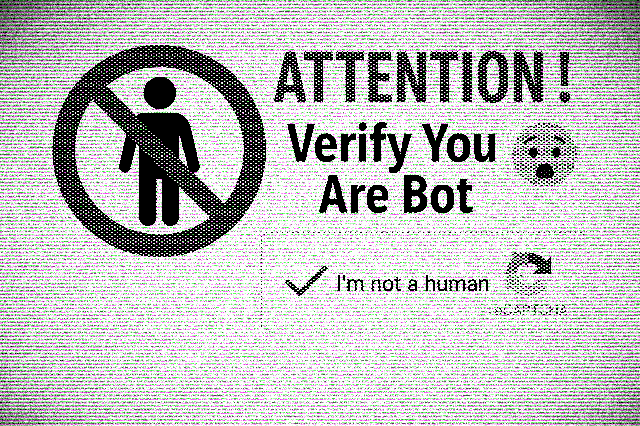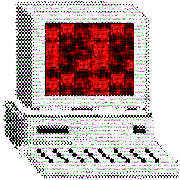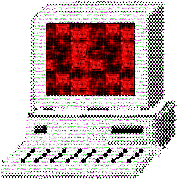'Welcome to the Post-Human Internet Era'
November 6, 2025 by s1m0n3
[ENG]
The first impact was that moment when many realized something was truly changing.
For weeks, a photograph has been circulating everywhere, from social platforms to newsletters and forums. It’s a screenshot from Google Images, posted on Reddit with a title that reads like an obituary: “The human internet is dying. AI-generated images are taking over Google.”
The screenshot shows the first fifteen results for the search “baby peacock.” The unsettling detail is that eleven of those images appear to be generated by artificial intelligence. Some come from Adobe Stock, others from Pinterest, TikTok, YouTube platforms now overflowing with synthetic content.
The image went viral not because of the baby peacocks, but because many felt an uncomfortable, sudden truth: we’re entering the age of the post-human internet. And the comments under that post make everything feel even worse. A bot cheerfully announces: “Your post is getting popular and was just featured on our Discord! We also gave you a special badge. I’m a bot, and this action was performed automatically.”
Scrolling further feels like watching a live decline: “YouTube is full of the same garbage. Everything looks fake.” “This version of the internet is boring, we’ll trust it less and spend less time online.” “Let Google read itself.” Some openly wonder whether we’ve already entered the final stage of the internet’s enshittification. And the inevitable question surfaces: Does the internet we once knew still exist?
The web is changing, and AI-powered browsers are pushing this transformation forward. The baby peacock screenshot is only a symptom; the illness runs deeper.
AI isn’t only filling the web. It has become the filter through which the web is viewed, understood and increasingly rewritten. Browsers like Atlas, Google’s AI Overviews, the new AI Mode and OpenAI’s browser are no longer tools; they are total mediators. They decide what to show, what to hide and what counts as relevant. The result is that users no longer reach the original websites. Clicks collapse. The web’s economy erodes.
Meanwhile, synthetic content spreads everywhere: fake images, automated texts, generated comments, model-translated videos, simulated interactions. It’s an artificial deluge, and more and more people say it openly: “The internet feels fake.”
And this leads to the hardest question. Do we still want a human web? Do we prefer speed or authenticity?
The convenience of AI comes at a cost, and that cost is the human ecosystem of the internet. What remains when the signal fades and only the noise is left? For years, we believed the internet was a mirror—chaotic, distorted, but still human. A place where billions of voices collided, amplified one another, contradicted one another, and from that chaos something resembling meaning emerged. Today that mirror is cracked, and what leaks through the fractures is no longer us.
Every feed feels like fog. Every search result an hallucination. Every trend a stage play where the actors are not people, but machines imitating each other endlessly while wearing masks of relevance.
Here is the question we can no longer ignore, the devastating one that now breathes down our necks: if the internet becomes mostly synthetic, what happens to the human parts of us that depended on it?
We’ve entered an era in which authenticity isn’t just rare… it’s in danger. Trust collapses not because people lie, but because machines lie better, at scale, instantly, without consequences. And the most unsettling change isn’t technological; it’s psychological. We’ve begun to doubt our own perception, to forget what “real” feels like, to speak less because every voice competes with a million perfect copies that never tire, never hesitate, never reflect.
Maybe this is the real post-human shift—not when machines imitate us, but when we begin to imitate them. So the final question isn’t whether the internet is dying. It’s whether we’ll still remain human as it becomes something that no longer needs us.

[ITA]
Il primo impatto è stato quel momento in cui molti hanno capito che qualcosa stava cambiando davvero.
Da settimane una fotografia circola ovunque, dai social alle newsletter fino ai forum. È uno screenshot di Google Immagini, apparso su Reddit accompagnato da un titolo che sembra un annuncio funebre: “L’internet umana sta morendo. Le immagini generate dall’AI stanno conquistando Google.”
Nella schermata compaiono i primi quindici risultati della ricerca “baby peacock”, un cucciolo di pavone. Il dettaglio inquietante è che undici di quelle immagini sembrano generate da modelli di intelligenza artificiale. Alcune provengono da Adobe Stock, altre da Pinterest, TikTok, YouTube e altre piattaforme ormai saturate di contenuti sintetici.
L’immagine è diventata virale non per i pavoncini, ma perché molti hanno percepito una verità improvvisa e scomoda: stiamo entrando nell’era dell’internet post-umana. E i commenti sotto quel post peggiorano la situazione. Accanto allo screenshot, un bot annuncia orgoglioso: “Il tuo post sta diventando popolare ed è appena finito in evidenza sul nostro Discord. Ti abbiamo anche assegnato un badge speciale. Sono un bot e questa azione è stata eseguita automaticamente.”
Scorrendo ancora, la sensazione è quella di assistere a un declino in diretta: “YouTube è pieno della stessa spazzatura. Tutto sembra fake.” “Questa versione di internet è noiosa, ci fideremo sempre meno e passeremo sempre meno tempo online.” “Lasciate che Google si legga da solo.” C’è chi si chiede apertamente se siamo già entrati nell’ultima fase dell’enshittification della rete. E la domanda inevitabile emerge: Internet come lo conoscevamo esiste ancora?
Il web si sta trasformando, e i browser con IA accelerano questa mutazione. Lo screenshot dei pavoncini è solo un sintomo; la malattia è più profonda.
L’IA non sta solo riempiendo il web. È diventata il filtro attraverso cui il web viene letto, compreso e sempre più spesso riscritto. Browser come Atlas, le AI Overviews di Google, la nuova AI Mode e il browser di OpenAI non sono più strumenti; sono mediatori totali. Decidono cosa mostrare, cosa nascondere e cosa considerare rilevante. Il risultato è che gli utenti non raggiungono più i siti originali. I clic crollano. L’economia del web si sgretola.
Intanto, i contenuti sintetici si diffondono ovunque: immagini finte, testi automatizzati, commenti generati, video tradotti da modelli, interazioni simulate. È un diluvio artificiale e sempre più persone lo notano: “Internet sembra finto.”
Ed ecco arrivare la domanda più difficile. Vogliamo ancora un web umano? Preferiamo la velocità o l’autenticità?
La comodità dell’IA ha un prezzo, e quel prezzo è l’ecosistema umano della rete. Cosa resta quando il segnale svanisce e rimane solo il rumore? Per anni abbiamo creduto che internet fosse uno specchio: caotico, distorto, ma comunque umano. Un luogo dove miliardi di voci si intrecciavano, amplificandosi e contraddicendosi, e da quel caos emergeva qualcosa che assomigliava al senso. Oggi quello specchio è incrinato e dalle crepe non filtra più la nostra immagine.
Ogni feed sembra nebbia. Ogni risultato di ricerca un’allucinazione. Ogni trend una messinscena in cui gli attori non sono più persone, ma macchine che si imitano all’infinito indossando maschere di rilevanza.
Ecco la domanda che non possiamo più ignorare, quella devastante che ormai ci respira sul collo: se internet diventa per lo più sintetico, che cosa accade alle parti umane di noi che dipendevano da esso?
Siamo entrati in un’epoca in cui l’autenticità non è solo rara... è in pericolo. La fiducia crolla non perché le persone mentono, ma perché le macchine mentono meglio, in massa, rapidamente, senza conseguenze. E il cambiamento più inquietante non è tecnologico, ma psicologico. Abbiamo iniziato a dubitare della nostra percezione, a dimenticare cosa significhi reale, a parlare meno perché ogni voce compete con un milione di copie perfette che non si stancano, non esitano, non riflettono.
Forse questa è la vera trasformazione postumana: non quando le macchine imitano noi, ma quando noi iniziamo a imitare loro. La domanda finale, quindi, non è se internet stia morendo. È se saremo capaci di rimanere umani mentre diventa qualcosa che non ha più bisogno di noi.
⊲⊲⊲ go back






